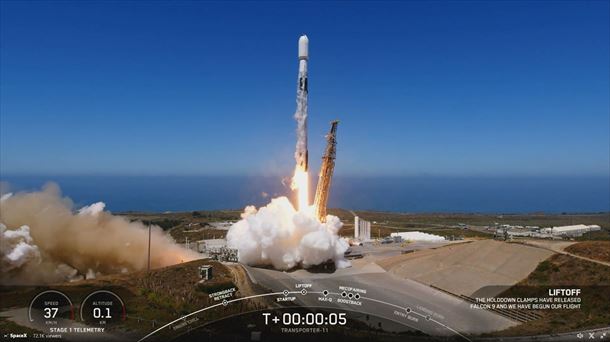At the start of the 59th Munich Security Conference, German Chancellor Olaf Scholz urged German partners to supply main battle tanks to Ukraine. In Munich, too, he would argue “intensely” for “that anyone who can supply such main battle tanks actually does so,” Scholz said in his speech on Friday. French President Emmanuel Macron and Ukrainian President Volodymyr Zelenskyy also called for further arms shipments.
At the end of January, Germany had set itself the goal of supplying Ukraine with an entire battalion of 30 to 31 main battle tanks. 14 of these would come from the stocks of the German Bundeswehr, Berlin is waiting for commitments from the Allies for the remaining tanks. Scholz said in his speech that Germany would help “to make this decision easier for our partners,” for example by training Ukrainian soldiers or providing support with supplies and logistics.
“Prevent unwanted escalation”
Scholz reiterated that any new step in arms aid should be agreed with partners. “We will continue to strike a balance between providing the best possible support to Ukraine and preventing an unwanted escalation.” He was happy and grateful that US President Joe Biden and many other allies saw it that way.
The German chancellor defended the tank deliveries to Ukraine against concerns from Germany. It was “not our arms deliveries” that prolonged the war. The sooner Russian President Vladimir Putin realizes “that he will not achieve his imperialist goal, the more likely the war will soon end and Russian troops will withdraw,” Scholz said. However, he also made it clear that he does not expect the war to end any time soon. It is therefore also important that the allies are prepared to support Ukraine for as long as necessary.
Selenskyj expects the war to end this year
Zelenskyj had previously stated in his video address that he expected the war to end in 2023: “Goliath is already starting to lose. Goliath will definitely fall this year,” the Ukrainian president said. He compared his country to the biblical David who had to defend himself against a Russian Goliath. There is “no alternative to our victory,” said Zelensky, who urged the West to accelerate the delivery of arms and aid to his country.
French President Emmanuel Macron also made it clear to the plenum that Russia should not win the war. “The Russian attack must fail,” Macron said. This requires permanent support from Ukraine. The supply of weapons must be intensified and the Ukrainian armed forces must be enabled to launch a counter-offensive.
NATO chief: ‘Victory in Ukraine still possible’
NATO Secretary General Jens Stoltenberg said on the sidelines of the conference that he still thinks a victory for Ukraine is possible. “Yes, that’s why we support them,” he replied when asked. The war may end at the negotiating table, but we know that what happens at the negotiating table depends entirely on the strength on the battlefield. He also urged the countries of the Western alliance to make further commitments for the supply of main battle tanks.
In addition to Russia’s offensive war against Ukraine, the main topics at the conference, which will run through Sunday, will also include Iran, China and the future of the international order in general.
Russian government officials are absent again
More than 150 senior government officials are taking part in this year’s meeting in Munich, including German Chancellor Olaf Scholz, French President Emmanuel Macron and US Vice President Kamala Harris. China’s top foreign politician, Wang Yi, is also a guest in Munich. He is scheduled to meet with Chancellor Scholz on Friday on the sidelines of the conference.
Russian government officials are absent for the second year in a row. After the Kremlin declined all invitations to the meeting last year, shortly before Russia invaded Ukraine, Moscow was not invited this time.
Schallenberg and Edtstadler on site
The Austrian government is represented in Munich by Foreign Minister Alexander Schallenberg and European Minister Karoline Edtstadler. Schallenberg uses his stay in Munich on Friday for a first meeting with his new Bosnian colleague Elmedin Konakovic. A meeting is scheduled for Saturday with Chinese foreign policy chief Wang Yi. Edtstadler will speak, among others, with the Belarusian opposition leader Svetlana Tichanovskaya.
The Munich Security Conference has been taking place since 1963. In addition to its public discussions and speeches, it is not least known for its so-called backroom meetings in the Bayerischer Hof, where politicians can exchange ideas in unofficial conversations.
Source: Krone
I am Wallace Jones, an experienced journalist. I specialize in writing for the world section of Today Times Live. With over a decade of experience, I have developed an eye for detail when it comes to reporting on local and global stories. My passion lies in uncovering the truth through my investigative skills and creating thought-provoking content that resonates with readers worldwide.



